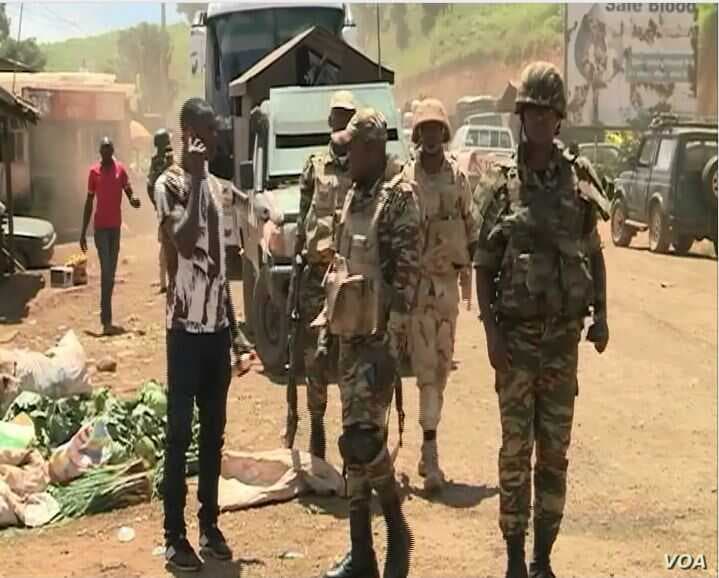YAOUNDÉ, Cameroon – Cameroon’s Catholic bishops are calling for peace as fighting intensifies in the country’s English-speaking regions.
“We see signs of violence every other day; signs of resistance to change,” Bishop Georges Nkuou of Kumbo told Crux.
“We have experienced a lot of suffering. We have experienced a lot of hate. We have seen so much happening that people are almost tempted to despair, to give up hope, but here we are with the message of Easter. Easter means that love conquers hate; that hate cannot have the last word,” he said.
“Therefore, our people should not give up hope. Our people should understand that if we all embrace the risen Christ, then it is possible for change to come about without further violence. Let people drop their weapons of hate and be ready to reconcile and to forgive and to care for one another,” the bishop said.
RELATED: Cardinal Parolin tells Cameroon that for peace to be solid, it must be built on justice
Kumbo is in North West Province of Cameroon, and a flash point for separatist violence.
The North West and South West Provinces are English-speaking and make up about 20 percent of Cameroon’s population. The rest of the country is Francophone, and French speakers have long dominated the central government.
“I feel the pain. In the last two days there have been gunshots, bullets flying all over the place, glasses shattered, and we have to lie on the ground. I am right in the heart of the fire, but the Resurrection tells me that that cannot have the last word,” Nkuou said.
Cameroon had been a German colony until the end of World War I, and was then divided between the French and British. The two parts reunited shortly after independence was achieved in the early 1960s.
Nearly five years ago, English-speaking lawyers and teachers began striking over efforts to change the common law legal system and British-based schooling system the Anglophone regions inherited from the colonial era.
The protests were violently suppressed by the central government, leading to a separatist insurgency intent on establishing an independent country called “Ambazonia.”
RELATED: Catholic charity says world ‘too silent’ on Cameroon’s Anglophone crisis
The fighting has killed at least 3,500 people and forced more than a million from their homes, according to the United Nations. The separatists have also enforced a school boycott in the two provinces, keeping children from receiving an education for years.
Failed efforts to establish peace
Several attempts at restoring peace to the troubled regions have been made, to little effect. The most visible was what the government called a “Major National Dialogue” that brought together about a thousand people from across the socio-political and religious spectrum.
The Catholic Church played a leading role, with the late Christian Cardinal Tumi leading one of the commissions.
RELATED: Cameroon’s lone cardinal and ‘fearless preacher’ dies on Good Friday
Among the recommendations made was the deployment of common law lawyers to common law courts he adoption of a special status for the two Anglophone regions, the restoration of the House of Traditional Chiefs, the election of local governors, the immediate relaunch of certain airport and seaport projects in the two regions, and the rapid integration of ex-combatants into society.
But the Archbishop Andrew Nkea of Bamenda told Crux that he didn’t think what happened was a dialogue at all.
“You can’t possibly have dialogue with a thousand people,” he said.
“There is a problem in English-speaking Cameroon, and it needs to be examined in depth if we want peace in this country,” he continued.
“Only a frank and sincere dialogue can lead us to a lasting peace,” the prelate said, insisting that such dialogue would involve a far smaller group of people with clear-cut positions from which to negotiate.
For Bishop Michael Bibi of Buea in the South West region, problems can only be resolved through “non-violent methods.”
“It’s a situation in which when you look at the difficulties of the masses, the challenges that they go through, the fact that children cannot go to school, then it really makes it difficult, but it is our prayer and wish that by the Grace of God, the issue will be looked into and eventually, a solution can be found as far as this crisis is concerned so that things can come back to normal,” he said.















